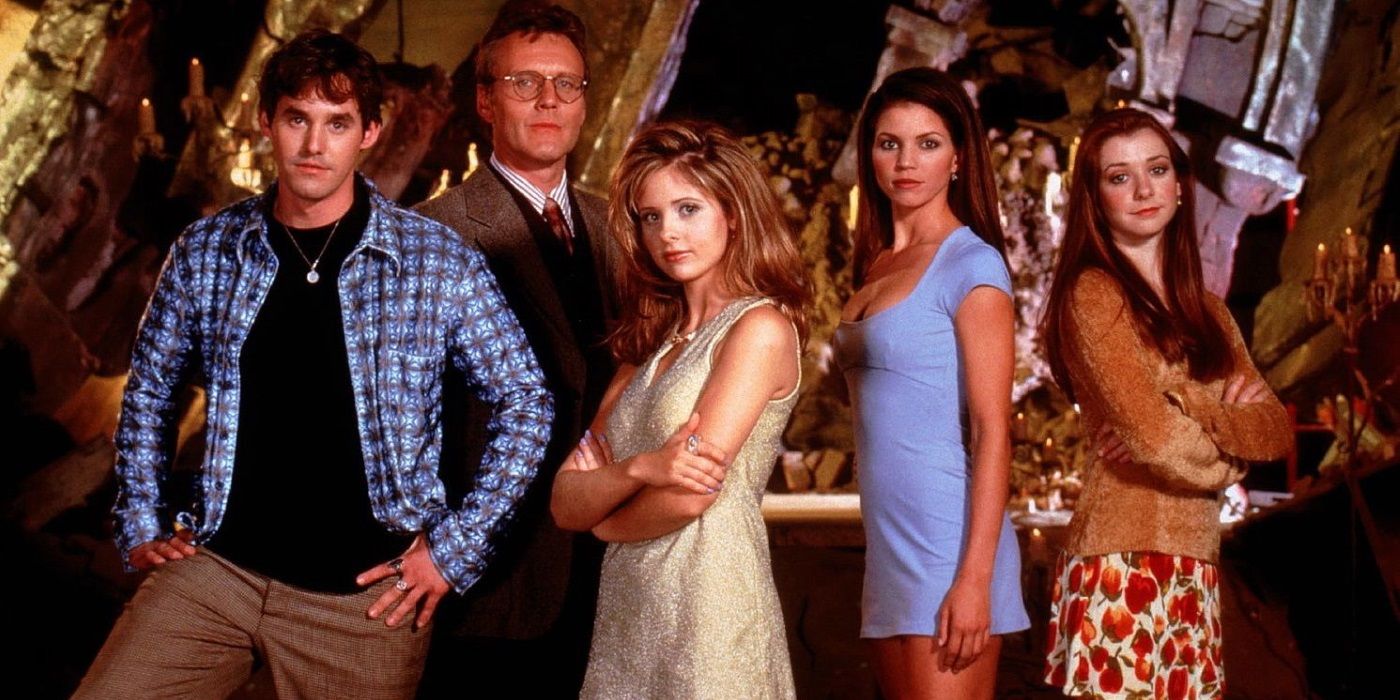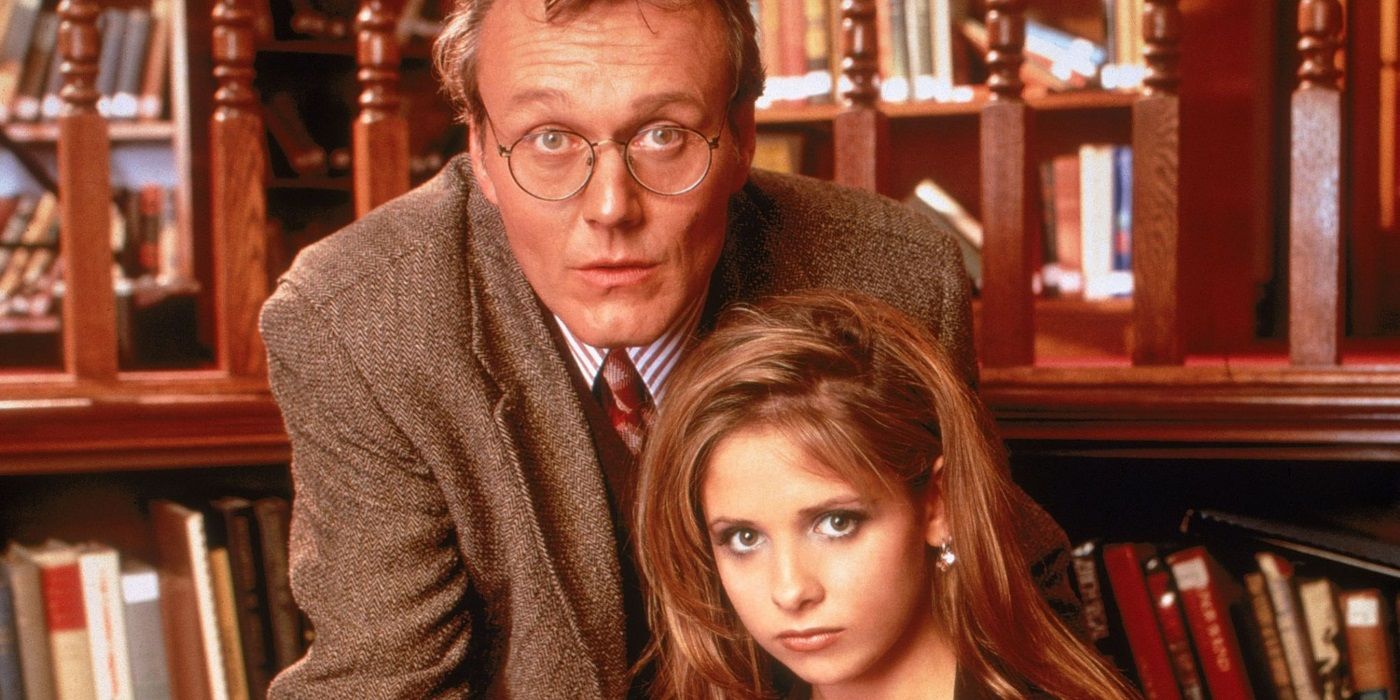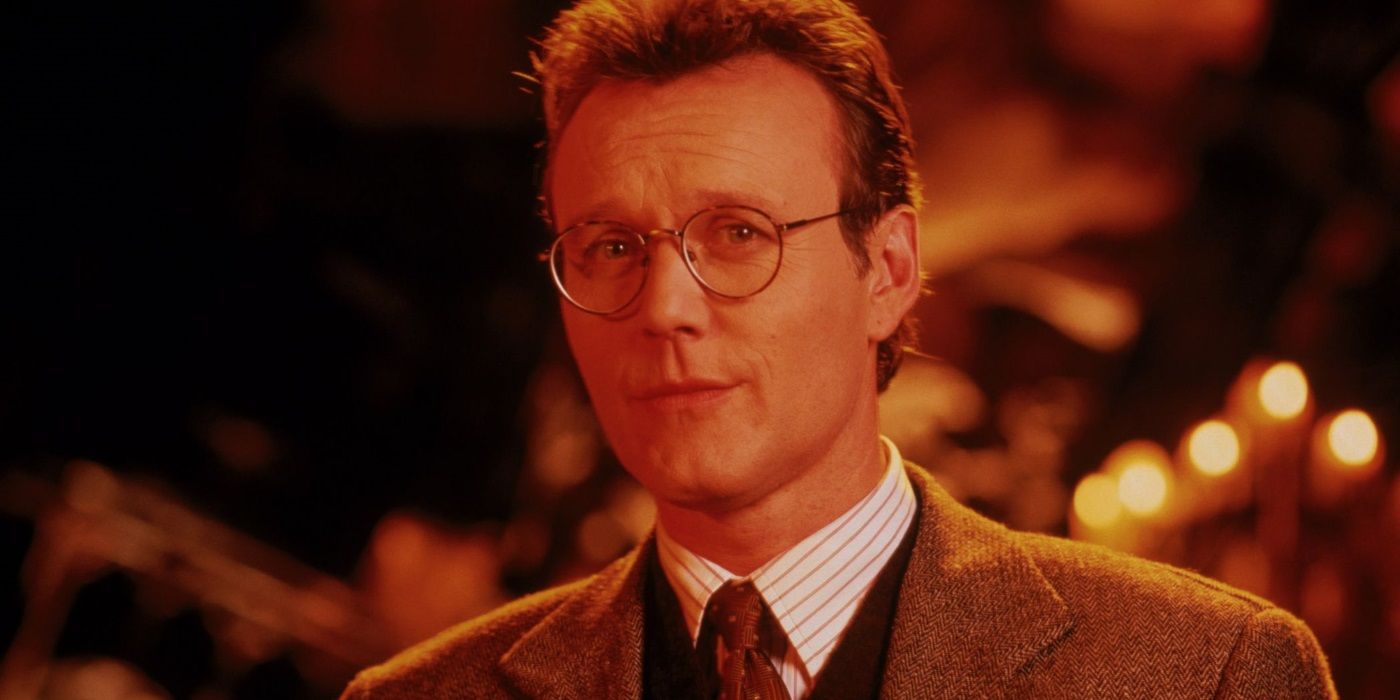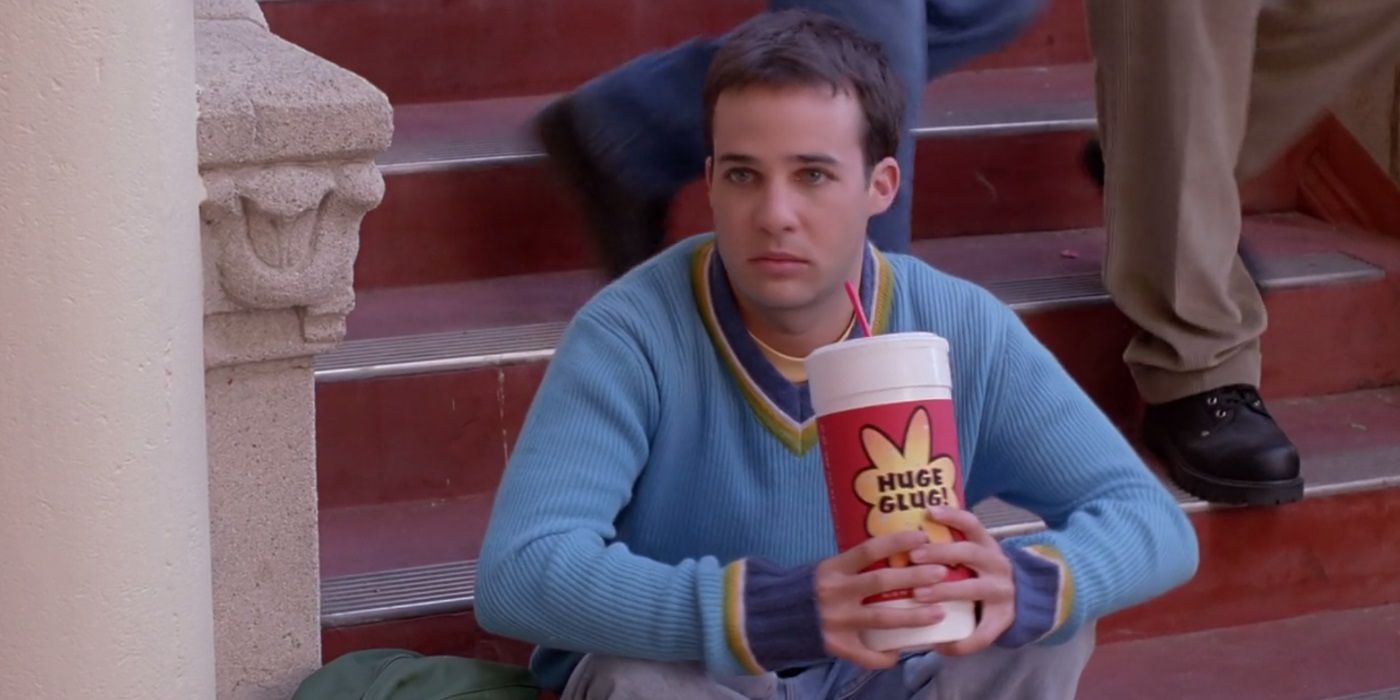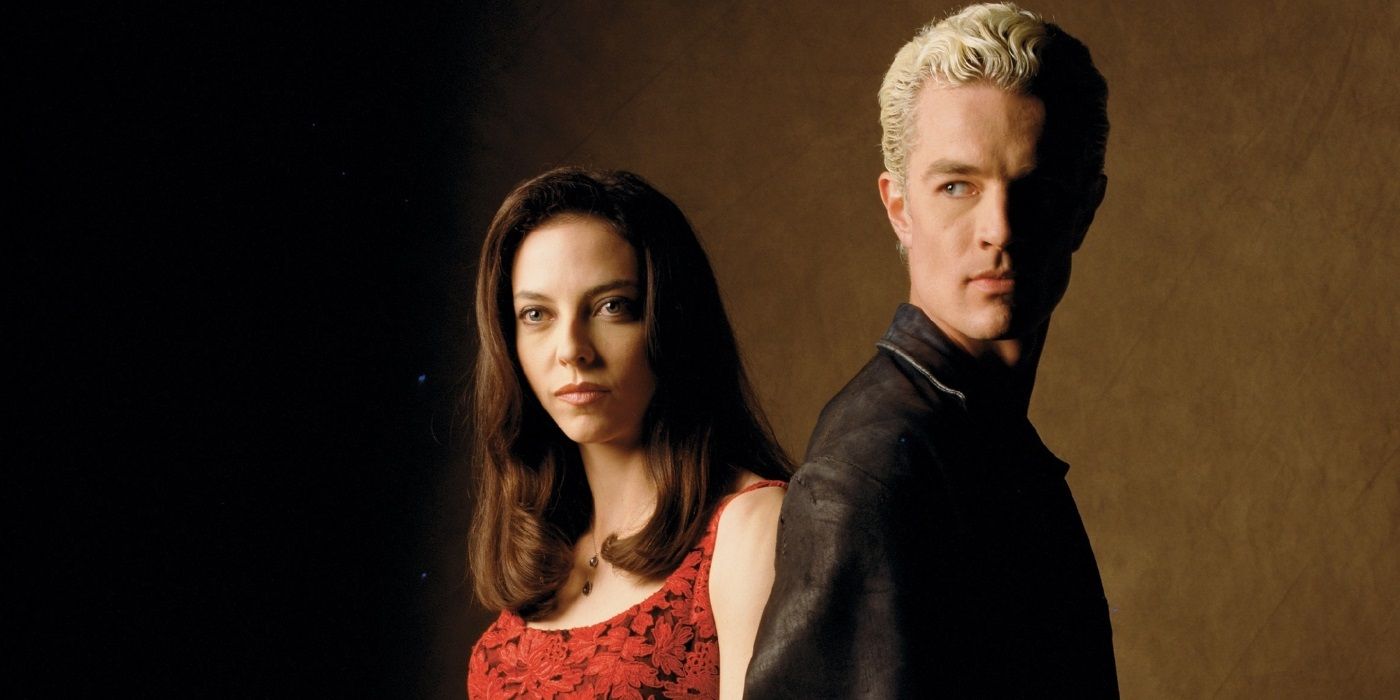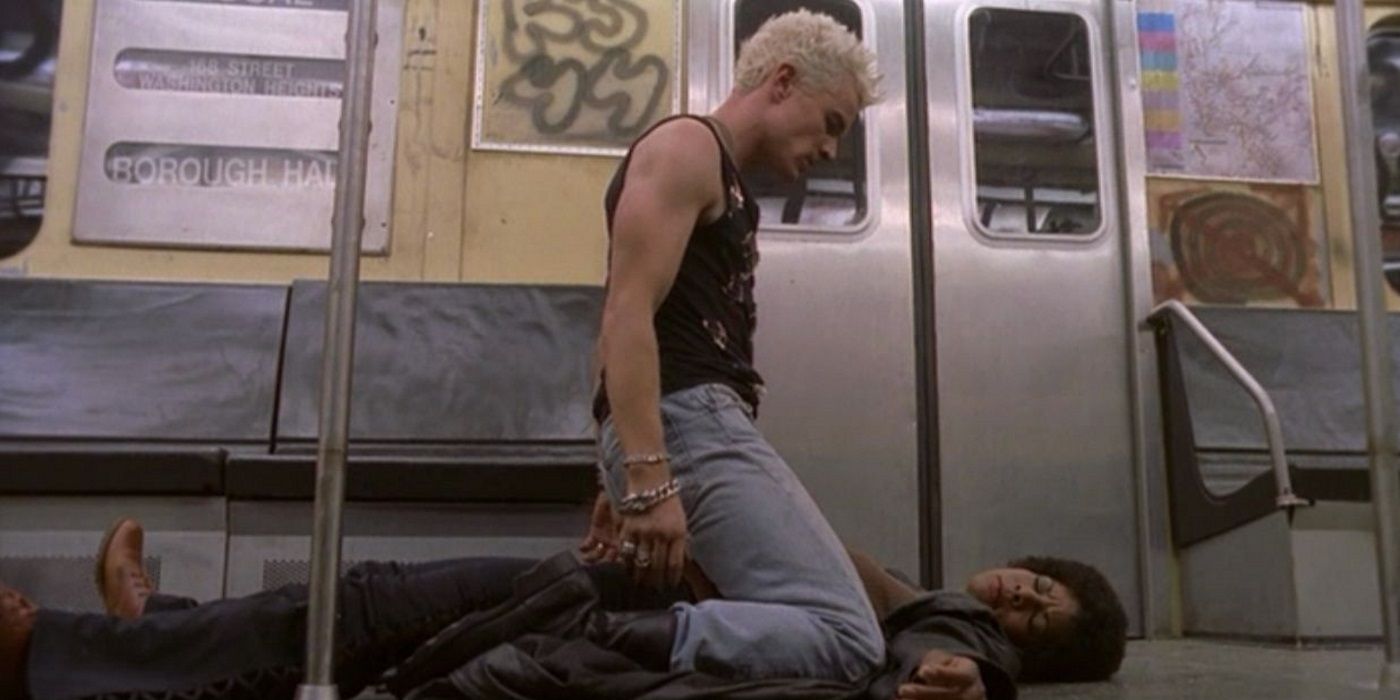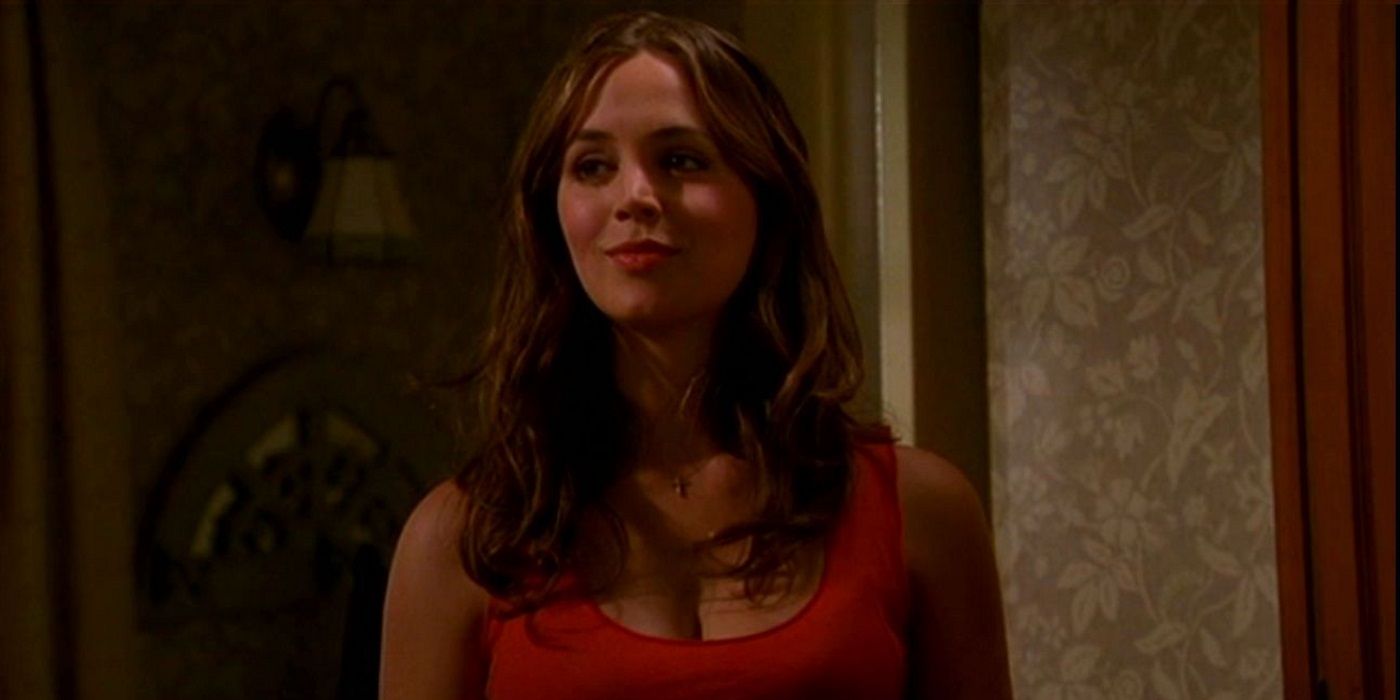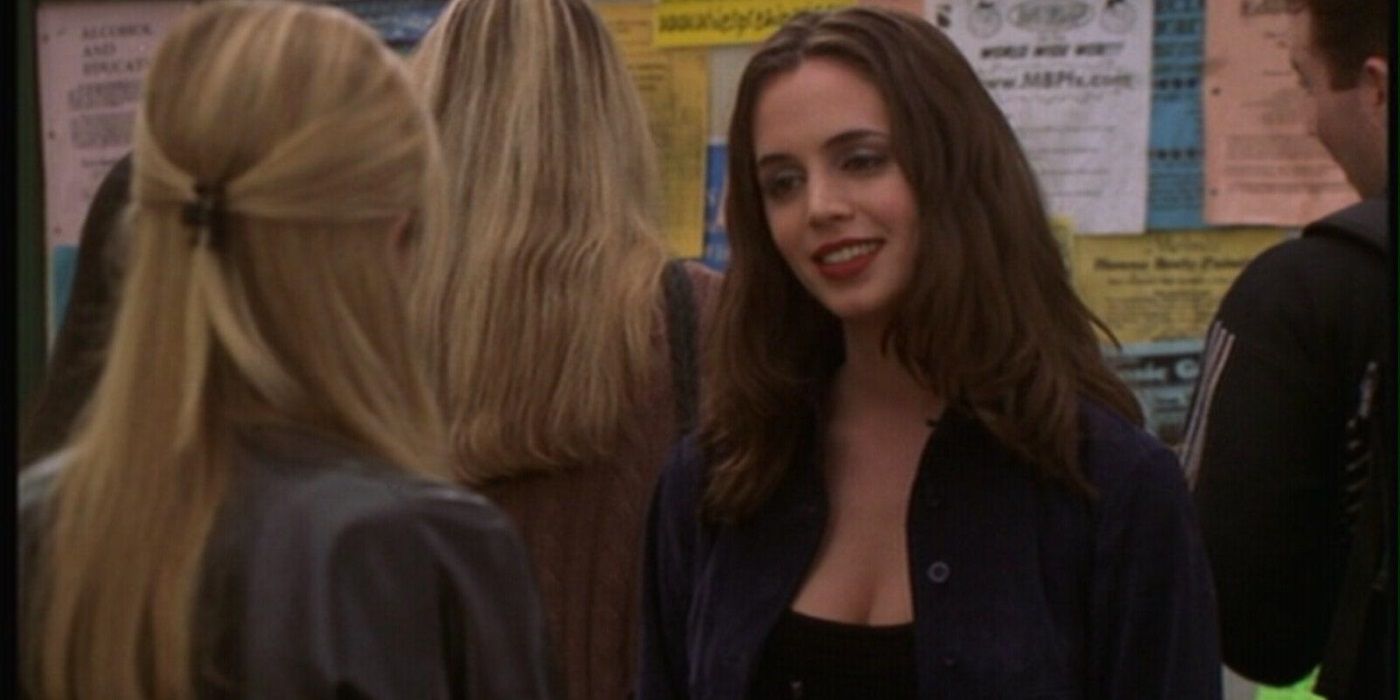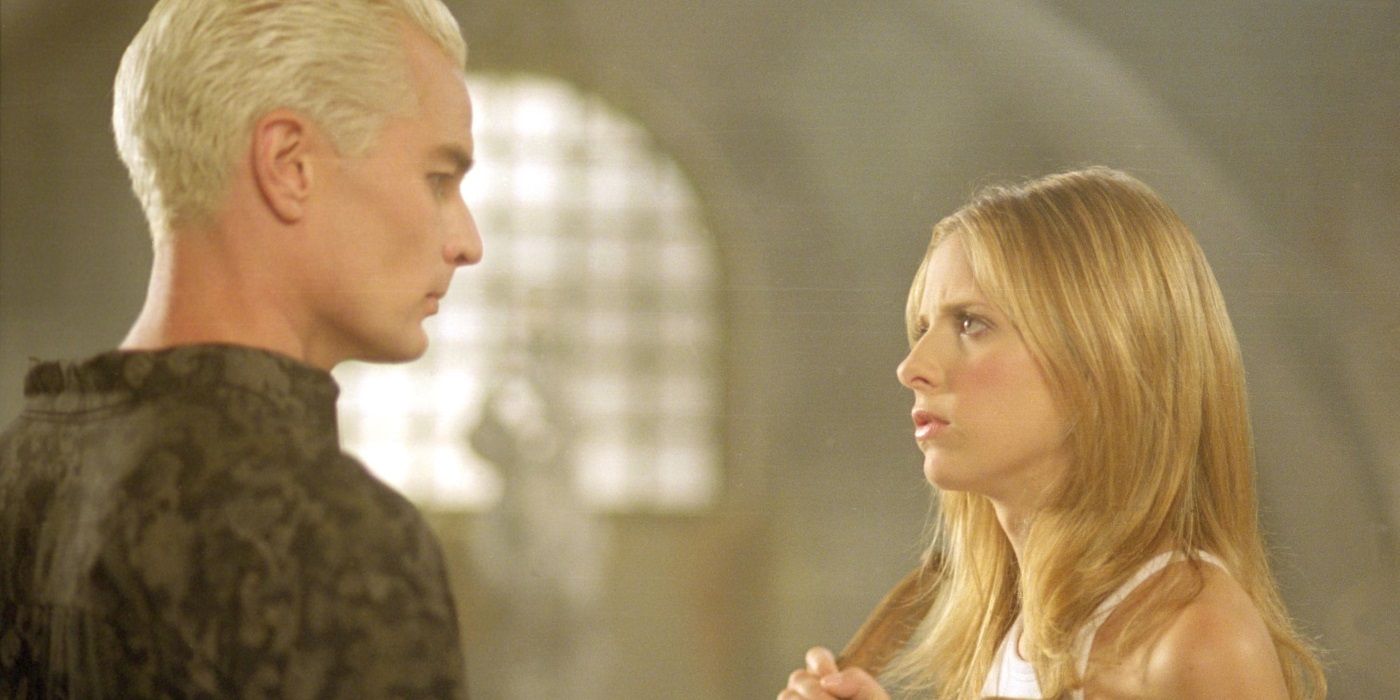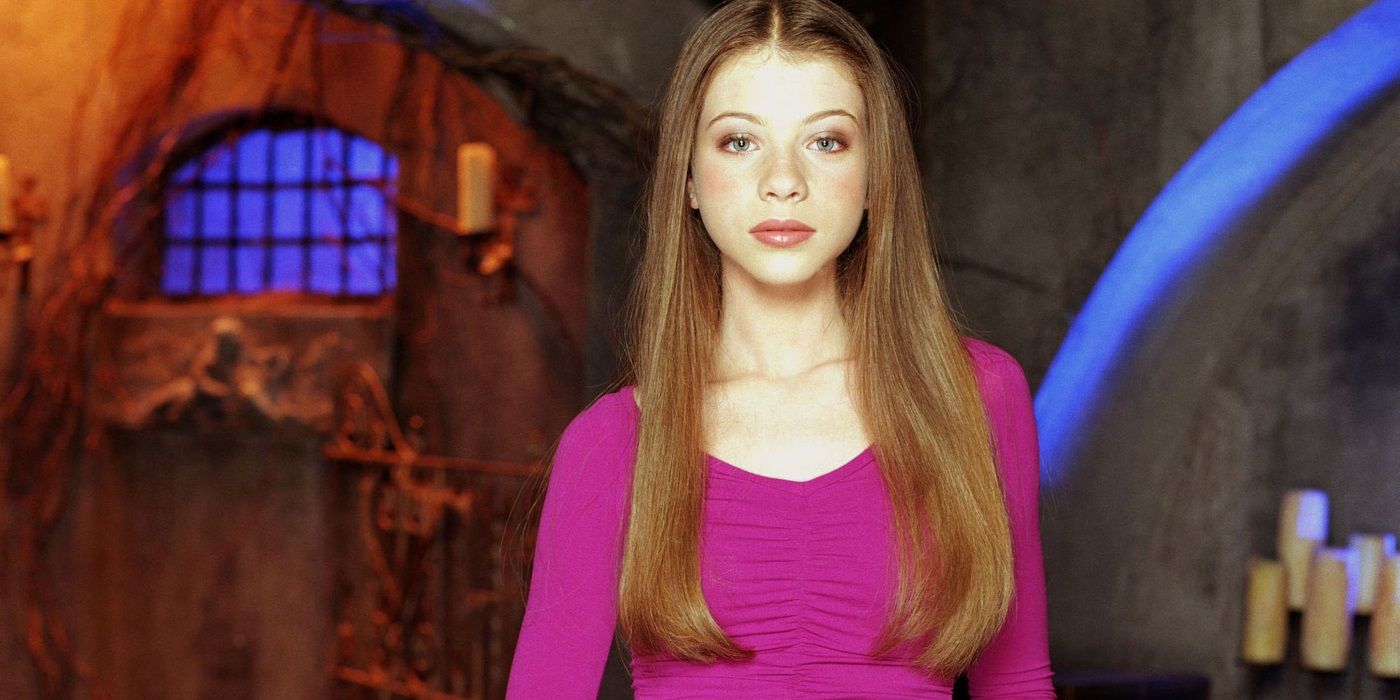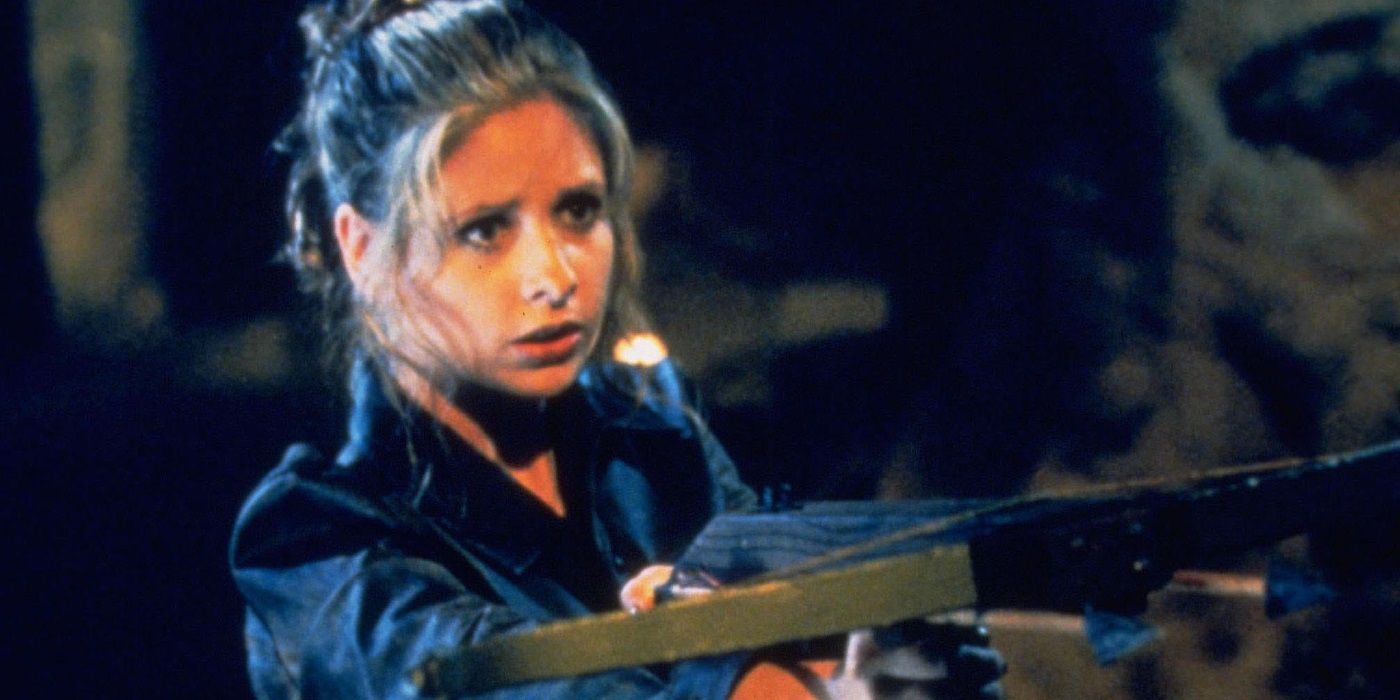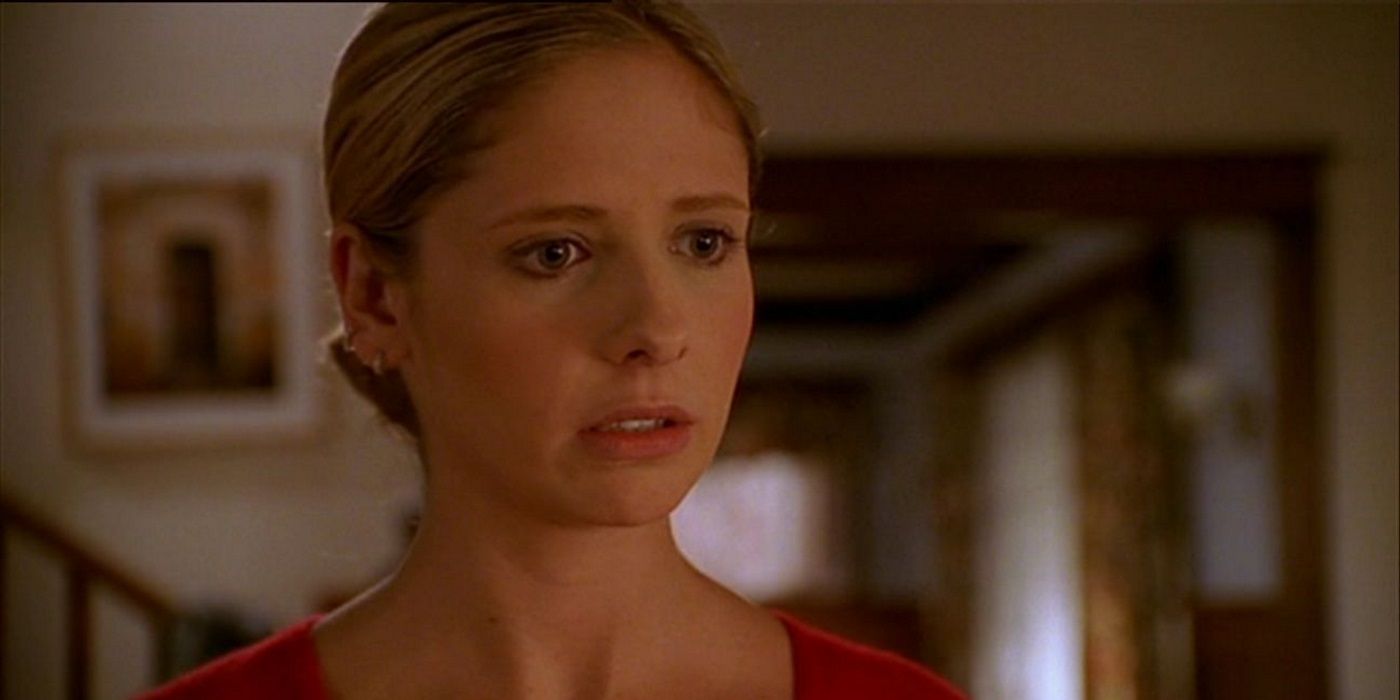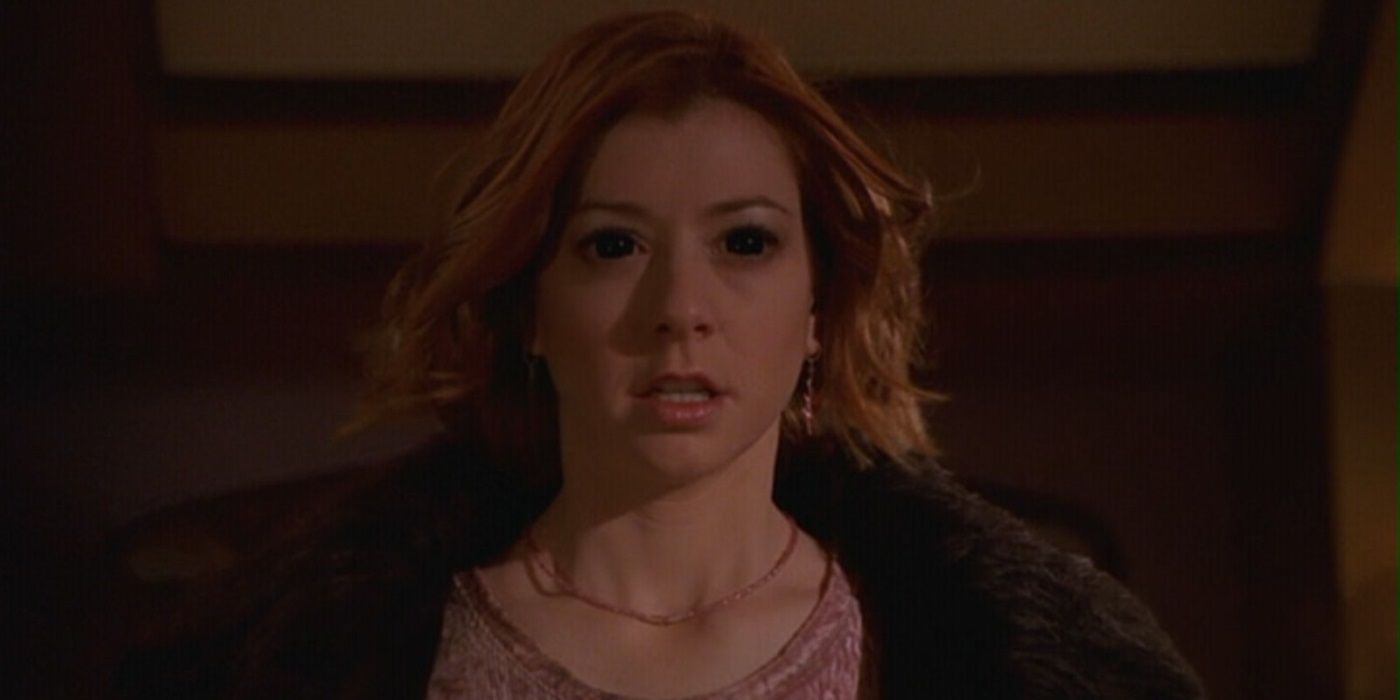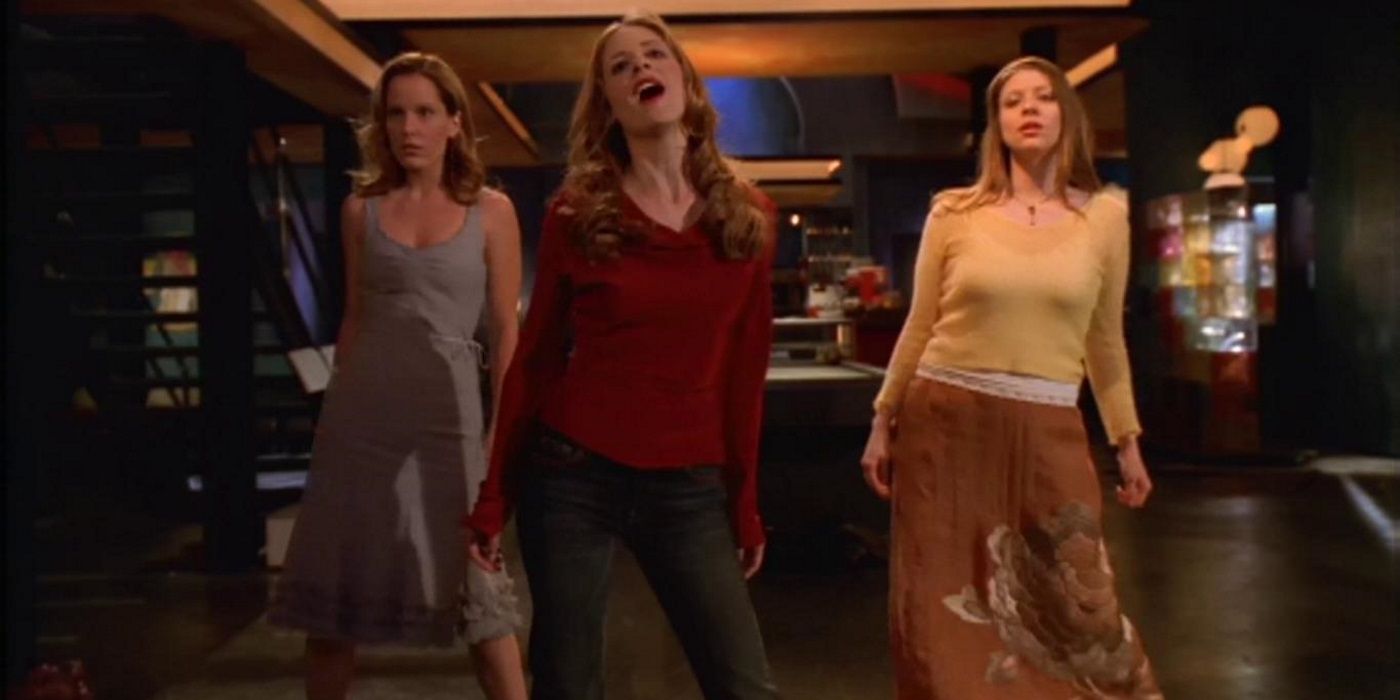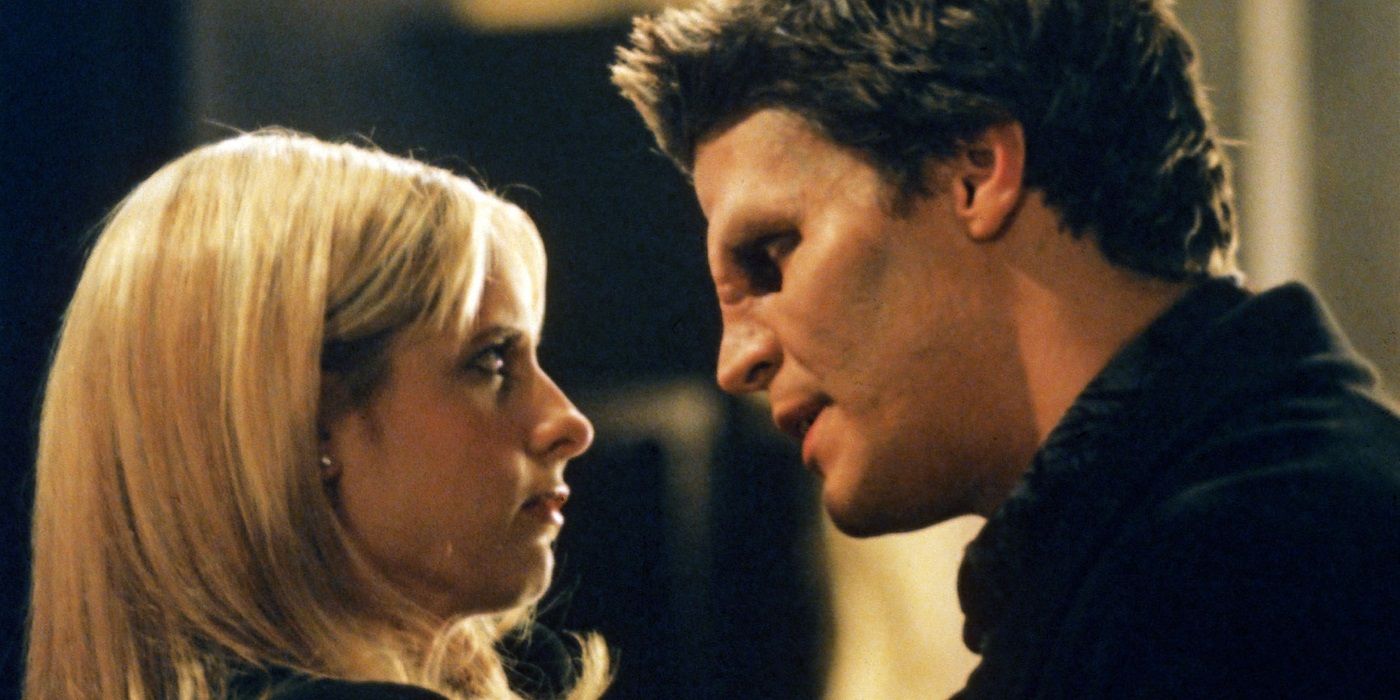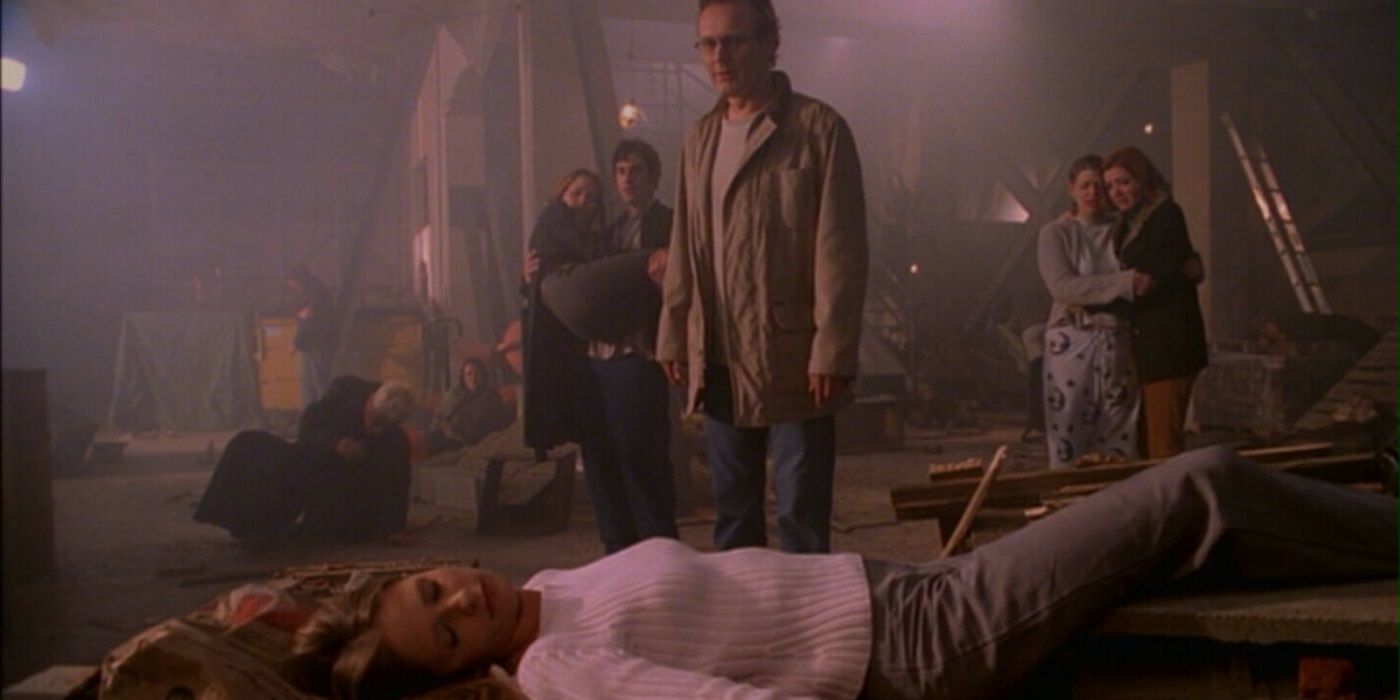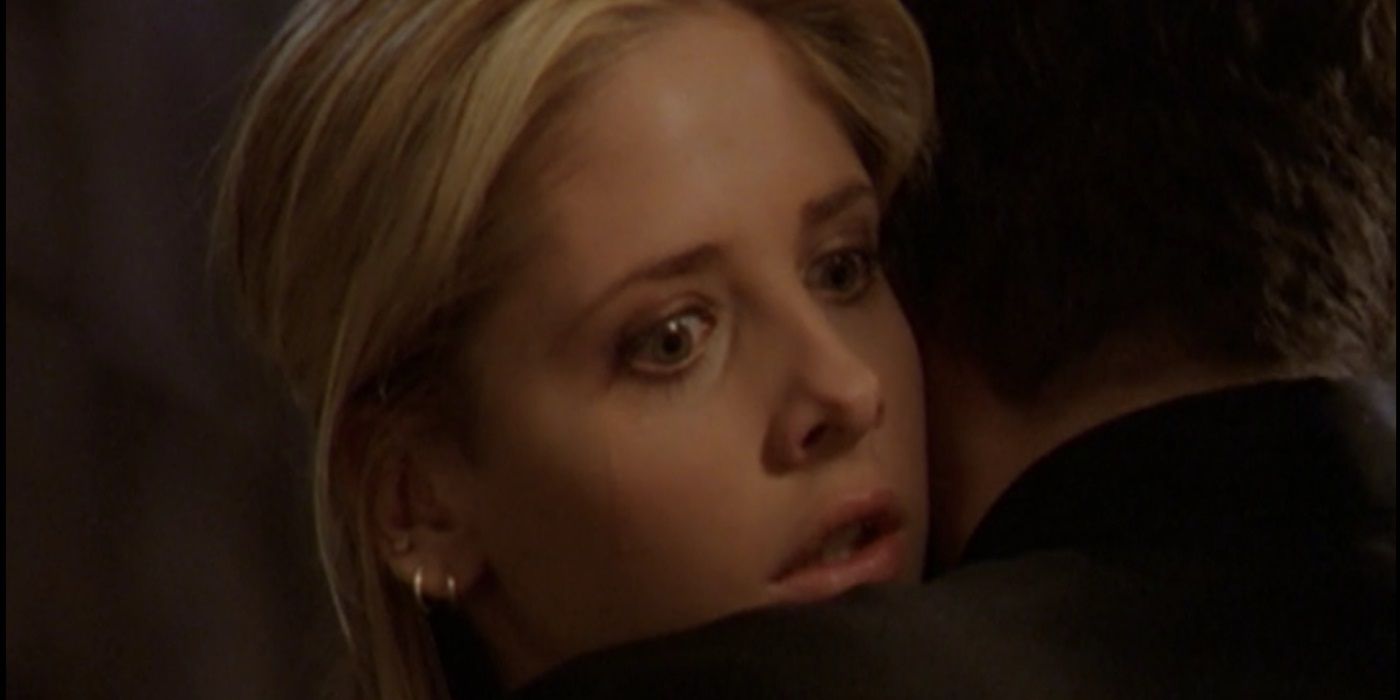Over seven seasons, "Buffy the Vampire Slayer" went far beyond the "monster of the week" format. Episodes explored taboo topics while characters dropped pop culture references left and right. "Buffy the Vampire Slayer" won only a few awards during its run from 1997 to 2003, but many TV critics (and its gigantic fandom) count "Buffy the Vampire Slayer" as one of the best TV shows ever.
RELATED: It’s Cool, Buffy’s A Superhero
Several episodes stood out for either changing the direction of the plot or unveiling more about a character, with the tone of the show evolving over its legendary run. The first season quickly ramped up its dramatic chops, letting viewers know that the series would be full of tragedy, as well as surprises, with the later episodes becoming, for many, a cultural televisual touchstone. With that in mind, and to celebrate that its first episode aired 20 years ago, in 1997, CBR takes a look at the 20 most important episodes of "Buffy the Vampire Slayer."
SPOILER WARNING: The following article contains major spoilers for "Buffy the Vampire Slayer."
20 WELCOME TO THE HELLMOUTH
The series premiere of "Buffy the Vampire Slayer" kicked off seven seasons of a game-changing TV show. Although it was set in high school, it tackled very mature issues about good and evil, love and sex, loyalty and friendship. "Welcome to the Hellmouth" introduced Buffy (Sarah Michelle Gellar) as a seemingly ditsy blonde cheerleader, but soon enough we found out she had a lot more going on.
"Welcome to the Hellmouth" also dispelled any worries that the audience or the network had about the TV show being the same quality as the movie with the same title. The "Buffy the Vampire Slayer" movie was panned, but the TV show proved right away that it was going to be a much different (some might say better) animal. Creator Joss Whedon has said many times that, as a screenwriter, he lost control of the movie when he handed over the script. However, as the TV show's creator and executive producer, he had complete control, and the difference showed.
19 BAND CANDY
This is the kind of episode that fans gleefully devour. In "Band Candy," cursed chocolate bars made adults act like teenagers. The premise gave the cast a chance to have fun with their characters. The actors, specifically Anthony Stewart Head as Giles and Kristine Sutherland as Joyce Summers, got to play attitudes and emotions their characters didn't usually feel. The audience enjoyed watching the role reversal of the kids and grown-ups. Just seeing Giles and Joyce behave like teenagers was a parody, not only of their normal stuffy selves, but also of Buffy and her friends.
The show couldn't have pulled off this episode in the first season. "Band Candy" aired during the third season, and by then, the characters were so well established that the writers could play with them a little. In fact, we got a peek into what kind of punk Giles might have been in his youth. Plus, by the third season, the audience knew the characters well enough to get the joke.
18 HUSH
Monsters don't get much creepier than the silent, suited, skeletal creatures in "Hush." The Gentlemen may have worn perma-smiles, but they were some of the scariest villains "Buffy the Vampire Slayer" ever had. They stole the voices of everyone in Sunnydale so residents couldn't scream when the Gentlemen cut out their hearts. The gang was forced to find other ways to communicate, like rude finger gestures (shame on you, Anya!) and white boards.
"Hush" made headlines when it aired in the fourth season for masterful storytelling, even in the absence of speech. Joss Whedon wrote "Hush" as a response to critics who said the show's success was thanks to its dialog, and not its production values. Ironically, "Hush" was nominated for an Emmy Award for Outstanding Writing for a Drama Series, the only nomination the show ever received for writing. "Hush" was also hailed for how it cleverly filmed the Gentlemen floating, rather than walking, around Sunnydale using a variety of techniques.
Lastly, "Hush" also marked turning points in two important relationships. Riley (Marc Blucas) discovered that Buffy wasn't just another coed, and Tara (Amber Benson) and Willow (Alyson Hannigan) begin to realize they have feelings for each other.
17 EARSHOT
"Earshot" dealt with two frightening and controversial topics. Buffy gained the ability to read minds and discovered someone wanted to kill all the students. Eventually, the gang found Jonathan (Danny Strong) in the clock tower with a rifle, planing to kill himself. They also uncovered the lunch lady's plot to poison everyone.
"Earshot" was originally supposed to air in the spring of 1999, but it was pulled from the schedule after the shooting at Columbine High School. Whedon and the network felt that airing the episode would be offensive in the aftermath of such a tragedy, as well as a painful reminder to anyone who watched. Instead, "Earshot" aired in September.
The episode dealt not only with mass killing, but also with suicide, another difficult issue. Buffy talked Jonathan out of killing himself by explaining that they all felt like outsiders, and that they were all insecure. Until that episode, Jonathan had been a funny background character. Showing a comedic character in tragic circumstances highlighted the fact, again, that you can't assume what's going on with someone by their outward appearance.
16 SCHOOL HARD
Spike (James Marsters) arrived in Sunnydale in Season 2 and the show was changed forever. In "School Hard," Spike brought his lady love, Drusilla (Juliet Landau), to Sunnydale to find the Slayer and kill her. Their brand of evil was chaotic and fun, tinged with lots of danger. They were conceived as the Sid and Nancy of Sunnydale. Spike and Drusilla's backstory tied them to Angel (David Boreanaz), and gave us information about his past, but more importantly, helped establish more of the Slayer mythology.
Although Drusilla eventually faded into the background on the series, Spike's role only got bigger, thanks in part to James Marsters' exuberance and charisma. Spike transformed over the years from a superficial villain to a complicated hero. He went from being Buffy's enemy to being her lover, and finally, her savior. As a character, Spike also helped the show explore the theme of good vs. evil, and the gray area that lies in between.
15 LIES MY PARENTS TOLD ME
Although Angel was the first vampire we fell in love with, Spike was arguably more interesting and a better partner to Buffy. In "Lies My Parents Told Me," Spike's life before he became a vampire is revealed in bits and pieces. Like a lot of vampires, Spike was nothing like his vampire self when he was a human. He was meek and insecure. He was called "William the Bloody" because of his "bloody awful" poetry. Seeing Spike's mother reject him, and how much it hurt him, went a long way toward explaining why Spike is so murderous and vengeful.
We also found out more about Principal Robin Wood (D.B. Woodside), who was the son of a Slayer. The episode plays with the theme of good vs. evil again, challenging the audience's perceptions. Whedon shows their commonality by making both of their mothers emotionally unavailable. It's hard to decide who is good and who is evil when both characters are bent on vengeance, but have also experienced terrible hurt and disappointment.
14 ANGEL
"Angel" was, perhaps, the quintessential "Buffy the Vampire Slayer" episode, because nothing was what it seemed. Buffy and Angel shared their first kiss, which was wonderful. But Buffy found out Angel was a vampire, which was conflicting, to say the least. Not only did she find out she was dating the ultimate bad boy, she knew it was her job to kill him. Nothing was ever easy on that show. When most teen dramas are centered on break-ups and make-ups, "Buffy the Vampire Slayer" took it further into a life or death situation.
"Angel" also set up themes for the entire series. What did it mean to be good or evil? How do you decide which is which? And, as the series progressed, what does it mean to make sacrifices for the greater good? Buffy had a big decision to make when it came to Angel. This was the episode that started Buffy down the twisted path of being a Slayer.
13 WHO ARE YOU
In interviews, actors always say how much fun it is to play a villain. Bad guys say what they want, do what they want, without worrying about consequences. Faith (Eliza Dushku) may not have been a true villain, but she certainly played fast and loose with rules and morals. In "Who Are You," however, she discovered that the consequences of being a good person has rewards she would never experience if she continued to be bad. When she took over Buffy's body and pretended to be her, long-buried emotions and desires came to the surface and made her question who she was and the life she was living.
On the flip side, watching Faith's body take on Buffy's mannerisms and behavior was also fascinating. Although Faith, in Buffy's body, decided to make Buffy's life her playground, Buffy had no interest in being Faith or living her life. Her goal was escape her captors, kill the vampires and get back to her own body. Faith, on the other hand, enjoyed being in Buffy's body, because she had the love and affection of Riley, as well as Buffy's friends. "Who Are You" showed that Faith was conflicted about her choices.
12 BAD GIRLS
Just like "Who Are You," "Bad Girls" explored the differences between Buffy and Faith. They were both Slayers, but while Buffy adhered to the rule book and her Watcher's instructions, Faith played by her own rules. She relished her power, even sexualized it, while Buffy kept it almost separate from herself. Faith was a Slayer 100% of the time, but Buffy was a Slayer only when she needed to be. The rest of the time she wanted to be a normal teenager.
In "Bad Girls," Buffy got a taste of what it was like to be Faith and embrace her inner badass in everyday life. The two of them got more and more daring, but soon enough, they got drunk on power and were out of control. By the end of the episode, the difference between the two Slayers was very clear. After accidentally killing a man, Buffy was incredibly remorseful, but Faith shrugged it off as collateral damage. That was the turning point both in their relationship and in Faith's path as a Slayer.
11 SMASHED
"Smashed" was the episode that made 'shippers around the world happy. It's also the episode that showed how dark the show could get. Spike realized that he could hurt Buffy, even though the chip in his head was still working, which meant that she came back to life "wrong." He goaded her into a fury. Their resulting battle morphed into sex. After coming back to life, Buffy was lost and depressed. Giving in and having sex with Spike was her rock bottom. Having violent, desperate sex was a long way from the dreamy kiss she shared with Angel back in Season 1. It was shocking, sad and complicated, all things that which "Buffy the Vampire Slayer" excelled.
Meanwhile, Willow was experiencing her own descent into darkness. She played with her witchy power at The Bronze, which showed that both characters were hurting and dealing with their pain in terrible ways. It's no coincidence that the title of the episode was "Smashed," another word for being drunk, as both Buffy and Willow were clearly drunk on power and violence.
10 BLOOD TIES
Introducing Dawn (Michelle Trachtenberg), Buffy's sister who literally came out of nowhere in Season 5, was met with a lot of fan griping. Despite being under pressure from fans to know why there was suddenly a new character on the show, Whedon and his crew did a marvelous job of keeping Dawn's importance and origin a secret. In "Blood Ties," Dawn found out she was the Key that goddess Glory (Clare Kramer) needed to return to her hell dimension.
"Blood Ties" was the turning point for Season 5. Dawn's revelation had been coming for a long time. Finally, the season's big secret was out and the gang could deal with it in the open. Although it was a confusing and heartbreaking discovery for Dawn, uncovering her secret meant the gang didn't have to waste time and energy hiding it from her. Plus, Dawn's identity crisis brought her closer to Buffy and their mother. Buffy was able to prove to Dawn how much she loved her and that they truly were sisters.
9 PROPHECY GIRL
"Prophecy Girl," the first season finale, was important for a couple of reasons. First, Buffy finally and completely accepted her role as the Slayer. When she saw vampires and demons were taking over the world, she decided to fulfill her role in the prophecy about the Master, even though she knew she would die. It was the first time she sacrificed herself to save the world.
Second, Buffy died and came back to life. That meant a new Slayer had been activated when she died. For the rest of the series, there were at least two Slayers, first Kendra (Bianca Lawson), then Faith, who provided many episodes of stories. Buffy's death and resurrection set the mythology of the Slayer for the series.
Third, it was Buffy's first really big win. Defeating the Master (Mark Metcalf), and closing the Hellmouth proved to everyone, and herself, that Buffy really could get the job done. Killing the Master removed any doubts she had that she could make a difference.
8 THE BODY
"The Body" was another episode that was hailed by critics and fans alike. In a fantasy TV series full of vampires, demons and magic, "The Body" was a stand-out episode because it depicted a natural death in a very realistic way. The episode started where the previous episode left off, with Buffy coming into the house and calling for her mother. The first time we saw Joyce, dead on the couch, she was blurry in the background over Buffy's shoulder, which was a disturbing image. "The Body" was beyond sad and very emotional.
The episode was shot and produced in ways to emphasize the mundane circumstances after someone dies. The episode had no soundtrack, when the show normally had sweeping music from Christophe Beck accompanying its emotional scenes. At times, the camera focused on objects rather than the actors' faces to contrast the drama of death with the boring reality of life, like when the camera focused on the wind chime outside rather than on Buffy throwing up in the bushes.
It's been nearly 16 years since "The Body" aired and I can still remember Tara's response when Buffy asked if her mother's death was sudden: "No. And yes. It's always sudden."
7 VILLAINS
"Villains" was another turning point, for both the series as a whole, and for a specific character. In the previous episode, Warren (Adam Busch) shot both Buffy and Tara. While Buffy survived, Tara did not. Her death sends Willow straight to the dark side. Tara's death, and Willow's subsequent reaction, put the season on the path to world destruction. (Willow's dark turn was wonderfully portrayed by Alyson Hannigan.)
Just as Buffy's resurrection sent her on a journey through darkness, Tara's death pushed Willow into using dark magic and becoming evil. Willow's transformation, however, was much more shocking and upsetting than Buffy's was. Buffy struggled with her role as a Slayer from the beginning. She frequently lived in the gray area, especially when it came to her relationship with Angel. However, Willow was always the chipper one in the group, seeing a silver lining and keeping everyone on the up and up. She was also timid and meek. Becoming a dark magician was a complete role reversal for Willow. Watching the usually sensitive Willow become remorseless and vindictive was very disturbing.
6 GRAVE
"Grave" had more than one big moment. While one storyline was resolved, another was beginning. Both instances were important for several main characters, especially in episodes to come. In the first storyline, Willow was in the midst of destroying the world. Magic couldn't stop her and no one was strong enough to even get near her. For the first time on the show, Xander (Nicholas Brendon) saved the world. He got through to Willow, friend to friend, and she reverted to her red-headed self. Xander, the Zeppo, who was always underestimated, blew everyone away, on the show and in the audience.
The other big story moment happened in Africa, where Spike was enduring an ordeal in order to win back his soul. Spike wanted his soul back so Buffy would forgive him. At the very end of the episode, his soul was restored, which put Spike on the path to redemption, although he would go through many trials to get there. Having his soul restored right at the end of Season 6 was a tantalizing and intriguing cliffhanger.
5 ONCE MORE, WITH FEELING
Musical television shows generally suck. I don't mean shows that have stand-alone songs in them, like "Empire," but rather shows that tell a story through song. Although Rachel Bloom won a Golden Globe for "Crazy Ex-Girlfriend," it isn't winning any ratings races. When Whedon announced he wrote a musical episode, fans cheered but critics groaned. However, it was sheer genius.
"Once More, With Feeling" showcased the musical talents of the cast. Only a couple of the cast members had sung on screen before, but all of them were brilliant. Whedon, who had never written a musical before, tailored the songs to his cast, which made their performances easier. Every character had a song that explored something with which they were grappling, like trust in a relationship or loving someone from afar.
Whedon purposely saved an important revelation for "Once More, With Feeling." Ever since Buffy had returned from the dead, she wasn't the same, but no one was really talking about it. In this episode, Buffy finally came clean. Much to her friends' surprise and dismay, she revealed she wasn't happy to be back in the living world. Though they thought they had rescued her soul from a hell dimension, she sang about how wonderful Heaven had been and how she wished they had left her there.
4 SURPRISE / INNOCENCE
"Surprise" and "Innocence" are listed together because they were a two-parter. While "Angel" revealed a fairly big secret -- that Angel was a vampire -- "Surprise / Innocence" was an even bigger shock for fans. Buffy, a virgin, finally gave herself to Angel. What seemed to be a teen dream, however, turned into a nightmare, however. Because Angel had experienced a moment of happiness and true love, the curse binding his soul to his vampiric body was lifted and he became the evil Angelus again. Angel's reverting to his vampire form, and Buffy's loss of a true love, was the beginning of the story that led to the season finale.
"Surprise / Innocence," like so many "Buffy the Vampire Slayer" episodes, was a brutal metaphor for real-life circumstances. Buffy fell for the dreamy older guy and slept with him. But the next day, he turned into a monster who didn't love her and tossed her aside. Not only was she ashamed, but she also had to get over him in order to kill him.
3 CHOSEN
One of the most important constructs of the whole show was turned on its head in "Chosen," the series finale. The premise that in "every generation, there is a Chosen One" was destroyed. Willow used the Scythe to channel its essence and activate every Potential Slayer on Earth to help them fight The First. Dozens of Slayers were activated on site and joined the battle, while around the world other Slayers were activated too.
Longtime fans of the show felt the same way Buffy did at the end of the episode. When Dawn asked, "What are we going to do now?" Buffy smiled with a joy she had never experienced before. She was no longer the only Slayer (or one of two). She didn't have to bear the burden of saving the world by herself anymore.
In addition to the world getting a whole bunch of Slayers, another big storyline -- and character -- came to an end. Spike wore the amulet that opened the sky and let in the sun. He sacrificed himself like the champion he had become. In true Spike fashion, he declared "I want to see how this ends" right before turning to ash.
2 THE GIFT
Buffy was no stranger to sacrifice. But her sacrifice in "The Gift" was bigger and more dramatic than any other in the series. Although she knew she was going to die in "Prophecy Girl," she was still inexperienced and probably hoped it wouldn't really happen. Sure enough, Xander resuscitated her after she was dead for only a moment. In "The Gift," however, Buffy was exhausted and kind of tired of being the Slayer. She was also grieving the loss of her mother. And by then, she had seen human death up close, a lot. She had a much better understanding of what it meant to die.
Her death was not only spectacular -- complete with a high dive, a funeral and a tombstone -- but also final. Her death at the end of Season 5 meant that no one, the characters or the audience, knew how the show would carry on without her. Her name was in the title! But Whedon doesn't do anything halfway. Her return to life was difficult and painful and had long-reaching consequences.
1 BECOMING, PART 2
When someone watches "Buffy the Vampire Slayer" for the first time and they get to "Becoming, Part 2," they break down. They also know they aren't watching an ordinary TV show anymore. "Becoming Part 2" was heartbreaking and epic, in the true sense of the word. Not many TV shows can top the emotional power of this episode. The shocking turn of events is heightened thanks to the juxtaposition of Buffy's mission to save the world, with the enormous love she felt for Angel.
Buffy's sadness and regret was bad enough when she knew she had to kill Angel, who was formerly her lover. Her pain was increased tenfold when she saw that his soul was restored and he became his old self. It was increased one hundredfold when she had to plunge her sword into the guy she fell in love with in anyway in order to save the world. It's no wonder she packed up and left town after the portal closed. The episode wouldn't have been so impactful, however, if the entire season hadn't also been carefully plotted and so well-written to deserve that payoff.
What was your favorite episode of "Buffy the Vampire Slayer?" Tell us in the comments!

